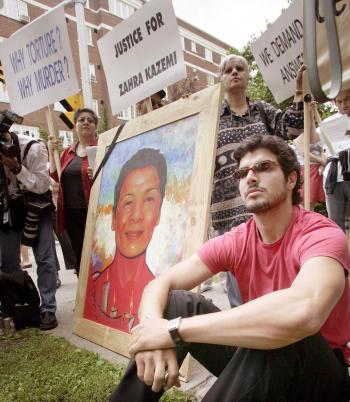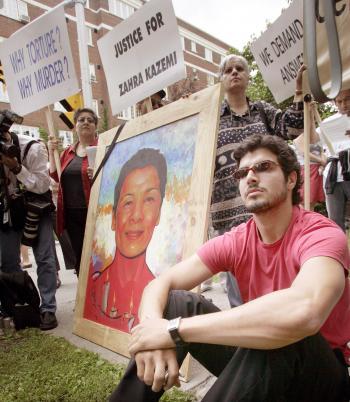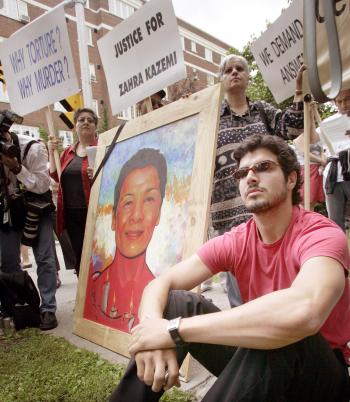It has been more than six years since Iranian-Canadian photojournalist Zahra Kazemi was tortured to death by Iranian authorities after being arrested for taking pictures of protesters outside a Tehran prison in July 2003.
Her son Stephan Hashemi’s efforts to seek justice for his mother reached a milestone on Dec. 2 when the lawsuit he launched in Quebec against the government of Iran and three Iranian officials began its court hearing in Montreal.
“Thinking about those who don’t have this chance, especially in Iran and in other countries, so many victims of this kind and we never hear about them, so it’s a responsibility that I have,” said Mr. Hashemi.
“From the beginning it was clear to me that my mother was more a symbol. She was a symbol of the oppression that is going on in Iran. She was a symbol of the lack of justice, and a great symbol for the attitude of the government toward its citizens—not only the Canadian government, any government.”
Mr. Hashemi said what he originally wanted was to have the Canadian government take the government of Iran to the International Court of Justice, the principal judicial organ of the United Nations, based in The Hague, Netherlands.
“For three years, I tried very hard, but the Government of Canada wasn’t ready to take any kind of action of this nature,” he said.
Iran has conducted a number of trials but to date no one has been found responsible for Ms. Kazemi’s death.
Her son Stephan Hashemi’s efforts to seek justice for his mother reached a milestone on Dec. 2 when the lawsuit he launched in Quebec against the government of Iran and three Iranian officials began its court hearing in Montreal.
“Thinking about those who don’t have this chance, especially in Iran and in other countries, so many victims of this kind and we never hear about them, so it’s a responsibility that I have,” said Mr. Hashemi.
“From the beginning it was clear to me that my mother was more a symbol. She was a symbol of the oppression that is going on in Iran. She was a symbol of the lack of justice, and a great symbol for the attitude of the government toward its citizens—not only the Canadian government, any government.”
Mr. Hashemi said what he originally wanted was to have the Canadian government take the government of Iran to the International Court of Justice, the principal judicial organ of the United Nations, based in The Hague, Netherlands.
“For three years, I tried very hard, but the Government of Canada wasn’t ready to take any kind of action of this nature,” he said.
Iran has conducted a number of trials but to date no one has been found responsible for Ms. Kazemi’s death.






